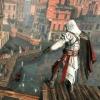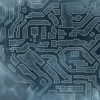Al Mualim quotes Ecclesiastes
The first line of dialogue in AC1 belongs to Al Mualim:
I applied my heart to know wisdom, and to know madness and folly. I perceived that this also was a chasing after wind. For in much wisdom is much grief; and he that increaseth knowledge increaseth sorrow.
This is from the Bible, Ecclesiastes 1:17 and 1:18. The funny thing is that I can't find a version of the Bible that contains all three sentences verbatim as above. It seems to be a combination of Ecclesiastes 1:17 from the World English Bible and Ecclesiastes 1:18 from the King James Bible or American Standard Version. It's as if Ubi started with the World English Bible but became disenchanted when it didn't say "increaseth".
Can anyone shed some light on this particular translation or explain why a secular character like Al Mualim is quoting from the Bible?
Well, the Torah (Old Testament) is a very, very important piece of literature. It helps define the three main Western religions - Judaism, Christianity, and Islam.
Among the Hashshashin, knowledge of history, religion, and politics is key - they can use this knowledge to their advantage, and to change their world.
Normally, I'd say that he's using the quote out of context*, but it actually fits pretty well with the plot and the Piece's of Eden - the Apple of course, being key to knowledge and wisdom, but the knowledge it brings shakes the very foundations of what (at that point millions, now billions) people believe. When somebody's world is shaken like that... well, it tends to not leave people very happy.
*The context of the quote is rather interesting, personally. And really, just pulling random quotes from a sacred text without giving them context is idiotic. The Book of Ecclesiastes was written by King Solomon, who was blessed with the gift of wisdom from God. The entire first two chapters of Ecclesiastes is all about how everything man can do or does is meaningless in the end.
Also, I enjoy reading the different translations of the Bible. I was born and raised Methodist, and we always used the New International Version. It's not really any different from the other versions you listed, maybe a minor phrase different here or there.
What's always interesting is reading the Message - a more modern, liberal/literal translation of the Bible.
16-17 I said to myself, "I know more and I'm wiser than anyone before me in Jerusalem. I've stockpiled wisdom and knowledge." What I've finally concluded is that so-called wisdom and knowledge are mindless and witless—nothing but spitting into the wind.18 Much learning earns you much trouble.
The more you know, the more you hurt.
The funny thing is that I can't find a version of the Bible that contains all three sentences verbatim as above. It seems to be a combination of Ecclesiastes 1:17 from the World English Bible and Ecclesiastes 1:18 from the King James Bible or American Standard Version. It's as if Ubi started with the World English Bible but became disenchanted when it didn't say "increaseth".Can anyone shed some light on this particular translation or explain why a secular character like Al Mualim is quoting from the Bible?
I'm not religious and know little of these things. But if there is an American Standard Bible, it's possible that there may also a Canadian version. Or just a translation from a French Bible, perhaps.



